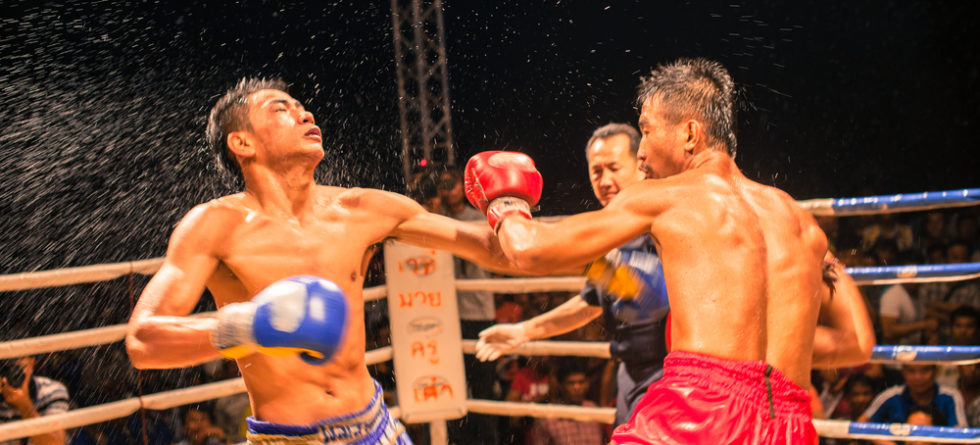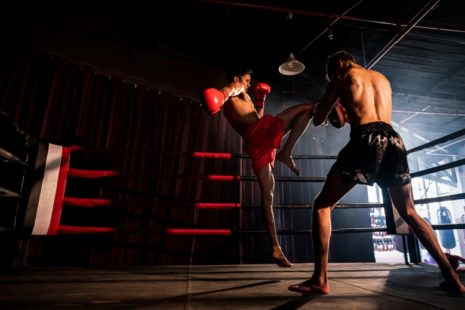In Muay Thai, as with many combat sports and martial arts, various injuries can occur due to the physically demanding nature of the sport. While the specific injuries can vary from person to person, some of the most common injuries in Muay Thai include:
- Contusions and Bruises: Muay Thai involves a lot of striking, including kicks, punches, knees, and elbows. Contusions and bruises are common due to the impact of these strikes, particularly on the shins, thighs, and torso.
- Sprains and Strains: Muay Thai requires rapid and forceful movements, which can lead to sprains and strains in muscles and ligaments, especially in the wrists, ankles, and knees.
- Fractures: High-impact strikes, particularly to the shins and hands, can result in fractures. This is one reason why shin conditioning is an essential part of Muay Thai training.
- Cuts and Abrasions: Cuts and abrasions can occur as a result of sharp strikes or contact with an opponent’s elbows or other sharp surfaces.
- Head Injuries: While head strikes are generally not allowed in Muay Thai, accidental headbutts or elbows to the head can lead to concussions and facial injuries.
- Joint Injuries: Kicking and striking can put pressure on the knees, elbows, and shoulders, which can lead to dislocations, hyperextensions, and other joint injuries.
- Tendonitis: Overuse of tendons can lead to conditions such as Achilles tendonitis or wrist tendonitis.
- Oral Injuries: Injuries to the mouth, including broken teeth and lip cuts, can occur if a mouthguard is not used.
- Rib Injuries: Body shots and rib kicks can result in injuries to the ribs, including bruising and fractures.
- Overuse Injuries: Repetitive stress on the body can lead to overuse injuries, such as stress fractures, muscle imbalances, and chronic pain.
- Hydration and Heat-Related Issues: Dehydration and heat exhaustion can occur during intense training or competition and may lead to various health issues.
The risk of these injuries can be reduced through proper training, technique, and conditioning, as well as the use of appropriate protective gear like gloves, shin guards, mouthguards, and headgear. Muay Thai practitioners should also listen to their bodies to avoid overuse injuries and prioritize rest and recovery for injury prevention. Proper warm-up and cool-down routines, along with guidance from experienced coaches who prioritize safety, can further help minimize the risk of injuries in Muay Thai.




